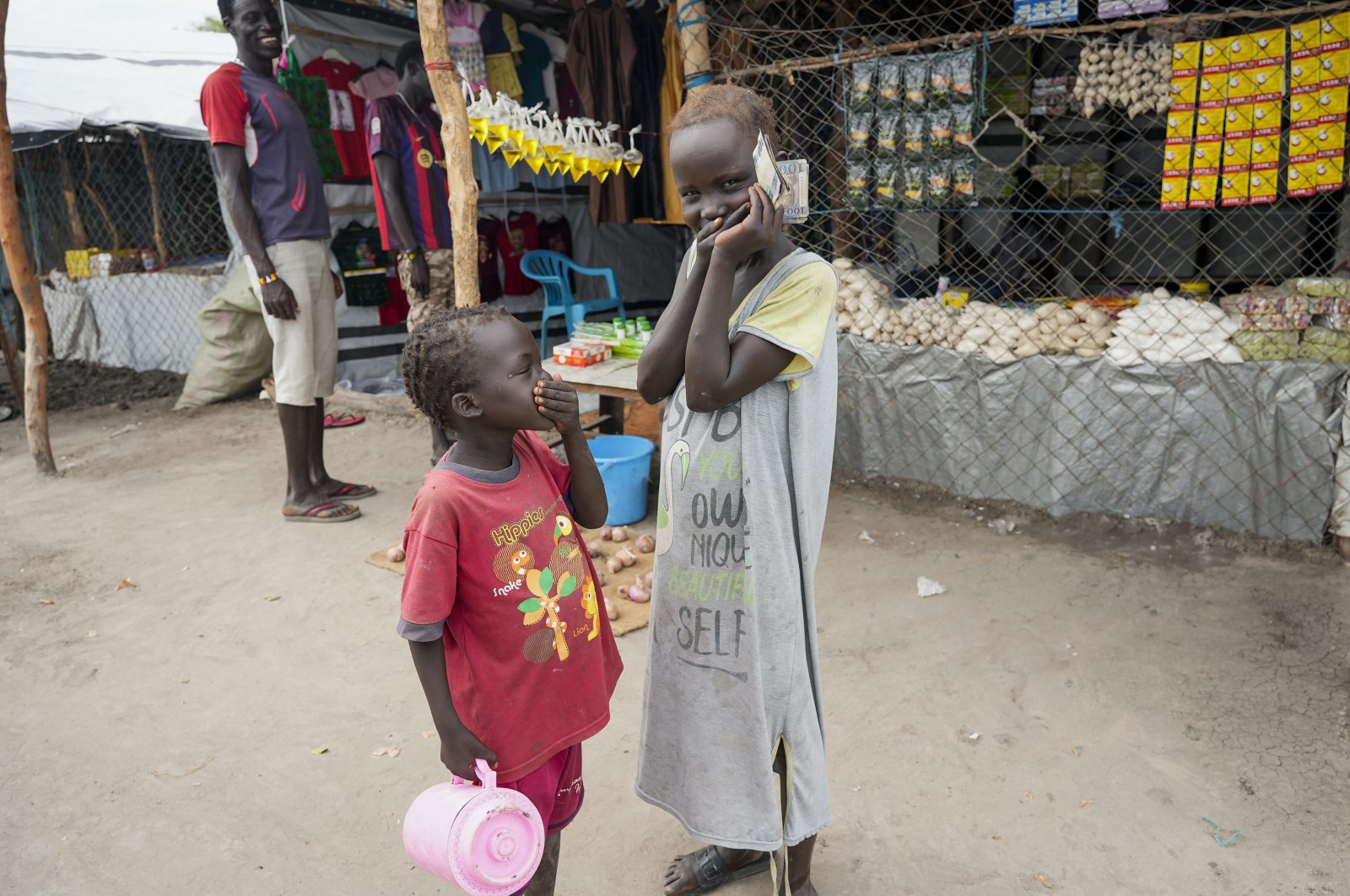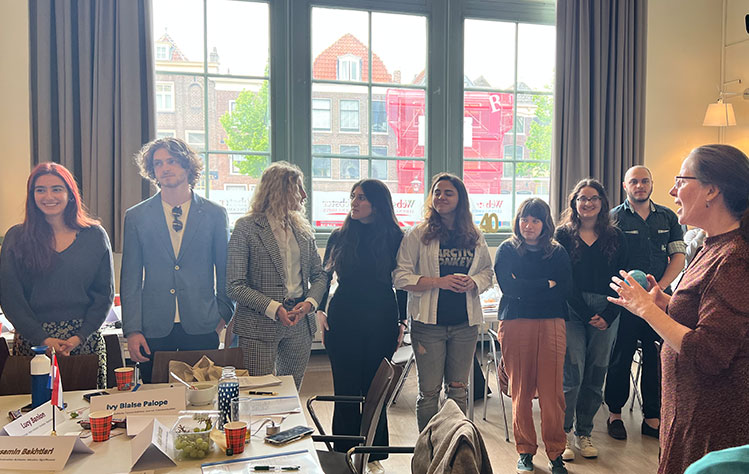Sudan in distress: Children at the centre of a devastating war

Trapped in a protracted conflict, Sudan’s children are desperate for a return to normality. Since the fighting began in April 2023, the country has been plunged into an unprecedented humanitarian crisis marked by persistent violence, massive population displacement, and a looming food crisis. Despite the horror they endure, Sudan’s youth remain hopeful that their country will rise again and find peace.
On April 15, 2023, gunshots and explosions rang out in the streets of the Sudanese capital Khartoum. Since then, the country has been plunged into a political crisis and civil war.
The current conflict pits General Abdel-Fattah al-Burhan, the head of the Sudanese Armed Forces (SAF) and de facto ruler of Sudan since the 2021 coup, against his former deputy Mohamed Hamdane Daglo, known as Hemedti, the head of the paramilitary Rapid Support Forces (RSF).
In 2021, the two generals jointly expelled the civilians with whom they had shared power since the overthrow of dictator Omar al-Bashir in 2019. But then they split over the issue of integrating the paramilitaries into the army. Having never managed to sign an agreement to restart a democratic transition, fighting began a year ago: paramilitary forces claim to have captured several key infrastructures. The army is carrying out airstrikes on paramilitary bases. The United Nations World Food Programme (WFP) suspended its aid on April 16, 2023, after several humanitarian workers were killed in fighting in Darfur, a vast region in the west bordering Chad.
Thousands of Khartoum residents are fleeing the fighting and many countries are evacuating their nationals. Although ceasefires have been signed, these agreements have never been respected, as the army and the RSF constantly accuse each other of violating the ceasefire terms.
When the conflict broke out, people were plunged into a never-ending catastrophe and violence increased day by day.
A devastating conflict
The clashes have plunged the country into a spiral of violence and chaos. On Monday, June 10, 2024, the International Organization for Migration estimated that before the current war began, 2.83 million people had been displaced from their homes by several local conflicts in recent years. According to the organization, more than 14,000 people have lost their lives and thousands more have been injured. The crisis has also forced more than 10 million people to flee their homes, creating an internal displacement crisis unprecedented in the country’s recent history.
The violence has not spared children either, and data shows that they are among those most affected by this crisis. Almost 19 million of them have not received any schooling since the beginning of the conflict. They live in precarious conditions, have no access to education and are often separated from their families. Many have been forced to flee the violence and half the population is in a critical situation. The desire to return to a normal life is omnipresent among these children. In addition, they long to contribute to the reconstruction of their country and to restore peace. However, for this to happen, the end of hostilities and the reopening of educational establishments are essential. The international community, represented in particular by the UN, has launched several appeals for help, but the needs remain enormous and the responses inadequate.
Acute humanitarian crisis
The humanitarian situation in Sudan is alarming. On June 7, UN aid officials warned of the ongoing violence and growing threat of famine that continues to ravage the Sudanese population. The warning echoes UN Secretary-General Antonio Guterres’ condemnation of an attack on a village south of Khartoum that killed more than 100 people, including at least 35 children.
Mohamed Refaat, the International Organization for Migration (IOM) head of mission in Sudan, highlighted the “truly horrific reports of violent attacks and casualties” from the village of Wad Al-Noura in Al-Jazeera state. This attack, attributed to the RSF, exacerbated an already critical situation and made humanitarian access to areas in urgent need even more difficult.
In al-Fasher, the capital of North Darfur, an estimated 800,000 civilians are at risk due to intensified fighting between the SAF and the RSF. This region is currently “inaccessible” to the UN by land or air. Prices for water and fuel have “skyrocketed”, making basic needs unaffordable.
Health facilities are also not spared from violence. Last Sunday, the paramilitary group RSF opened fire on the southern hospital in al-Fasher. Repeated attacks on the hospital killed two people and injured 14 patients. Doctors Without Borders reported that most patients and medical staff were able to flee the gunfire. However, these attacks seriously hamper efforts to provide necessary medical care to civilians trapped in conflict areas.
Urgent call for action
In the face of this crisis, calls for action are growing. Michael Dunford, WFP Regional Director for East Africa, stressed the need for a ceasefire and humanitarian access to scale up aid operations. “The conflict must end; a ceasefire is necessary. We must be able to scale up our operations and for that we need humanitarian access. We need a long-term political intervention that will enable us to maintain peace,” he said.
IOM Director Amy Pope called for a unified response from the international community to avert “looming famine” in Sudan. The humanitarian needs are “massive, acute and immediate” and less than a fifth of the funds requested by the IOM for this response have already been disbursed.
Despite the horrors of the conflict, hope remains. Sudan’s children dream of a better future where they can go back to school and help rebuild their country. The international community’s efforts to provide humanitarian assistance and end the violence are critical to making that dream a reality.
Sudan, a war-torn country, continues to fight for survival. The voices of the children most vulnerable in this conflict remind the world of the importance of peace and stability. They yearn for a future where they can live in safety, go to school and help build a united and prosperous country.
As the humanitarian crisis deepens in Sudan and its neighbouring countries, where millions of people have sought refuge, a famine that could become the world’s worst looms. The international community must heed this call for help and work together to end this tragedy. Sudan needs support, hope and peace.



